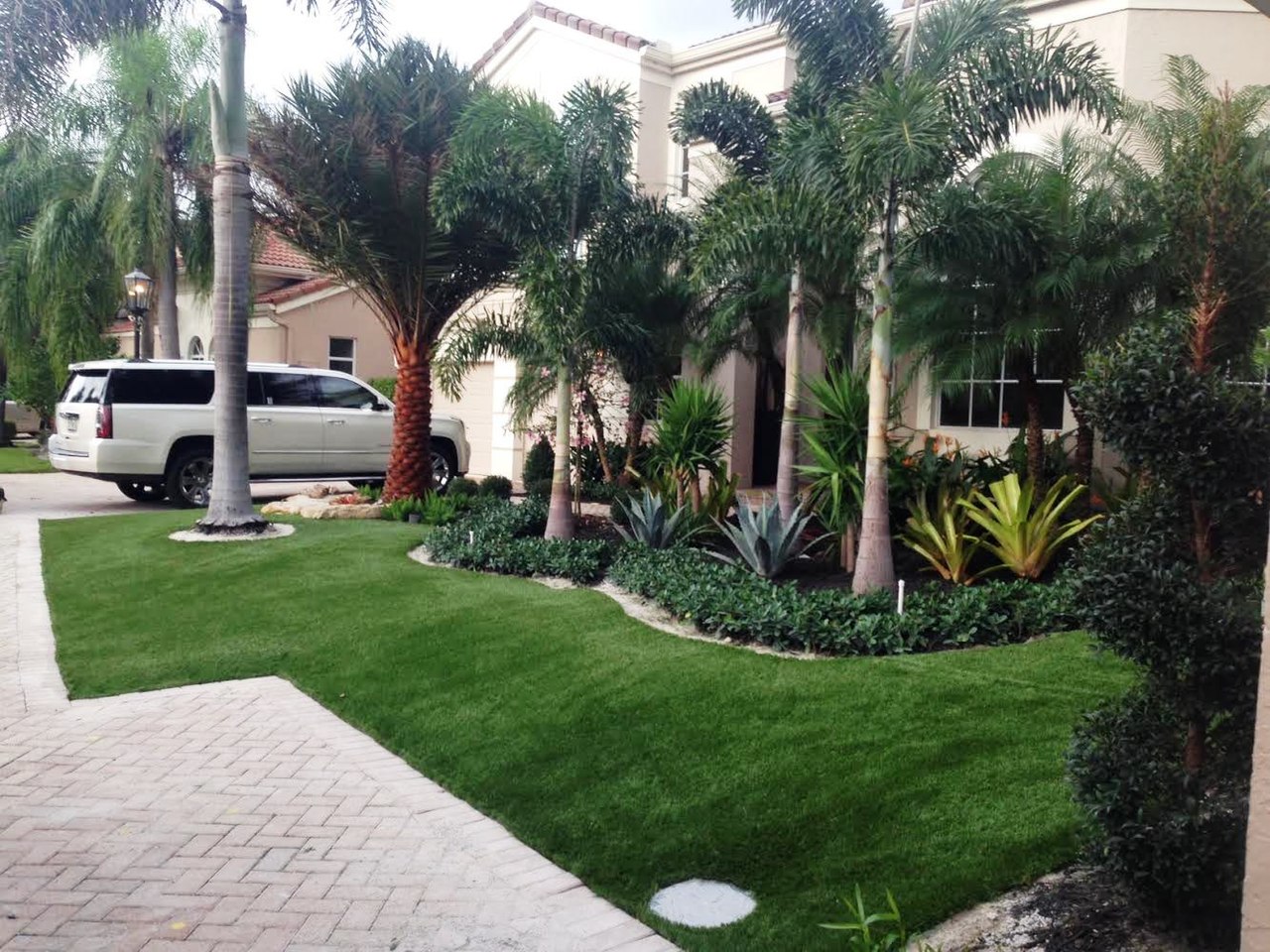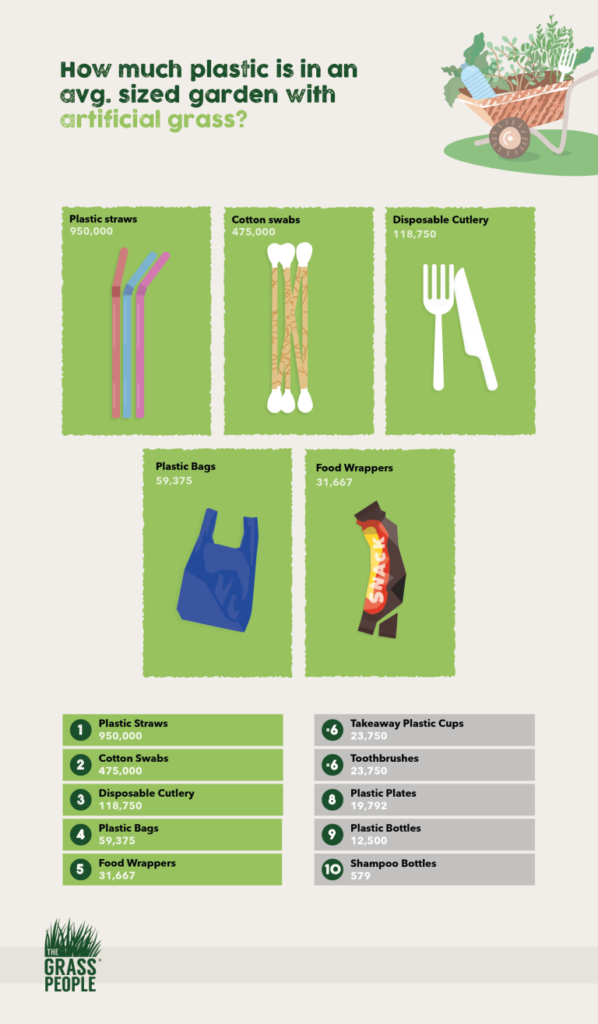They use a lot of plastic, so why are they so popular?
“One garden with artificial grass is equivalent to 950,000 plastic straws,” a post by website the Grass People warned this month. “Would you put plastic straws in your garden? Of course not!”
To come up with this result, they have calculated the number of single-use plastic which would fit into the average-sized garden fitted with artificial grass.
“Real grass houses many critters, bugs and animals, even if you can’t see them when in your garden. Balanced biodiversity and wildlife are essential for all life on earth to supply us with clean air and nutritious foods. When artificial grass replaces grass seed, biodiversity and wildlife are removed completely from your garden. The birds, worms, butterflies and more can’t survive on plastic,” the site points out.
Yet, a growing number of people opt for artificial grass in their gardens, especially those living in hot climates like Cyprus. The reasons are manifold.
Climate change is one. During times of prolonged drought, grass obviously turns brown during the summer.
“For many people, the colour green has strong associations with nature and brings to mind lush grass, trees, and forests. Green is often described as a refreshing and tranquil colour. Other common associations with the colour green are money, luck, health, and envy,” educational psychologist Kendra Cherry commented, writing in Verywell Mind, an online resource for mental health topics.
Maintenance and cost are other factors.
“I have a small grandchild playing in my garden, and two dogs running around,” said Maria Georgiou, who lives in Nicosia. “Since I have the artificial grass, we don’t need to water the garden and the dogs and the child have a clean environment to play in.
“Plus, nowadays it looks almost like real grass, only tidier.”
“We have finally done it. After years of trying to maintain real grass in our garden, my husband and I opted for artificial grass – we don’t need a lawn mower to cut it, and you can just clean it with a broom,” Rena Kyriacou, owner of a house in the capital, commented.
Local website AtYourService acknowledges plastic grass has the tendency to absorb heat which results to an increase in temperature for the surrounding buildings but also notes:
“Let me remind you, we live in Cyprus. By living in such a warm country with long periods of water shortage, the cost but also the time needed to care for it [real grass], in case you lack it, might be a serious reason against natural grass.”
AtYourService also cites the cost of real grass, “not because of the purchasing costs but mainly due to maintenance. The cost of water, pesticides, fertilisers, irrigation system and gardener costs, almost make it a luxury asset.”
Biofriendlyplanet.com is a site concerned with environmental pollution and the fossil fuels needed to maintain a lawn.
“Maintenance equipment is required to keep real grass healthy and beautiful. Lawn mowers, strimmers, scarifiers, etc. – all of them use fuels like petrol and diesel.”
Are all these good enough reasons to go for artificial grass? Not really, is the short answer.
Martin Hellicar, head of conservation organisation BirdLife Cyprus, has this to say:
“The use of plastic grass is a negative in the sense that it is a form of land sealing, which ‘deletes’ what could be a patch of habitat – albeit managed and man-made habitat – that could otherwise have some value, especially if a lawn or garden is allowed to host some weeds, is not sprayed with chemicals and includes some native plants. Plastic grass is ‘dead space’ for nature.”
Richard Bunting of Rewilding Britain argues just manufacturing plastic lawns uses fossil fuels, meaning they contribute a larger carbon footprint than letting grass grow naturally, “a natural garden actually soaks up carbon”.
“Overall, the trend toward plastic grass is really worrying,” says Bunting. “We’re facing a nature crisis where biodiversity is collapsing and a climate crisis. We’re pedalling in a direction opposite to the one we should be going in.”
Tom Stanton, research fellow of Physical Geography at Loughborough University, reminds us “microplastic particles can be washed off the [plastic grass] pitches into the surrounding terrestrial and aquatic environments,” he said.
“These particles can be ingested by organisms causing physical harm, can leach harmful chemicals associated with their production into the environment and can act as vectors for other pollutants in the environment.”
But Lazylawn, the UK’s biggest artificial grass supplier, makes the point that we can have it all.
“Artificial turf may reduce the biodiversity of your garden as it is made of plastic and so is not a natural material that wildlife can live in,” it says.
However, by planting flowers, shrubs, and plants around the lawn and in other areas of the garden, you can combat the lack of biodiversity, encourage wildlife, and make your garden a habitat for many different species whilst providing a safe and practical year-round space for all the family to enjoy.
“This way, you get the best of both worlds.”








Click here to change your cookie preferences